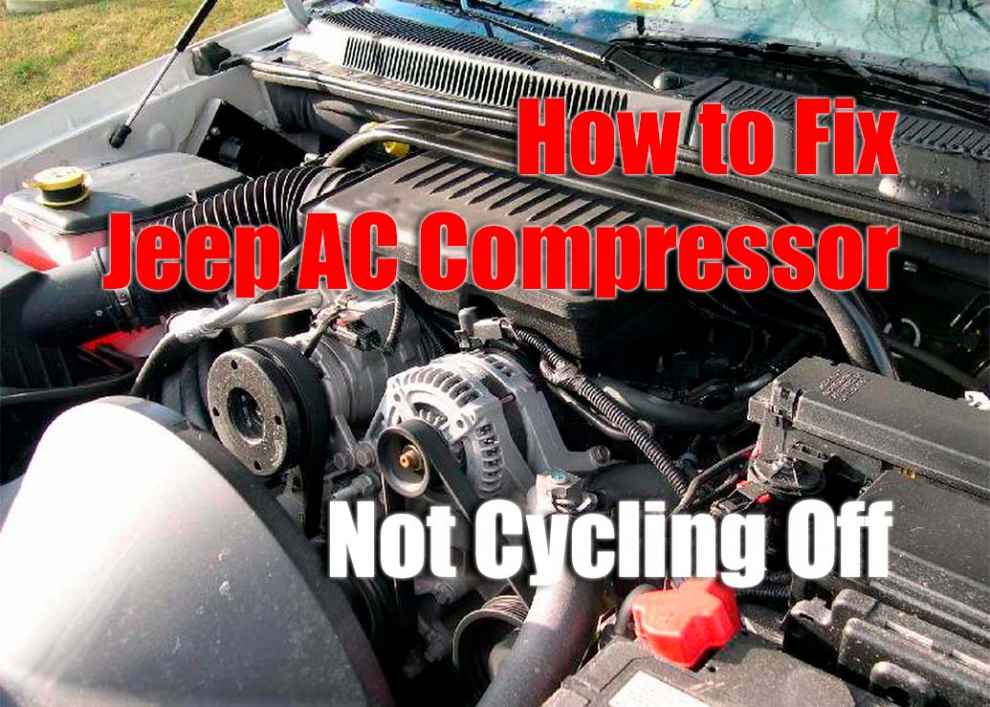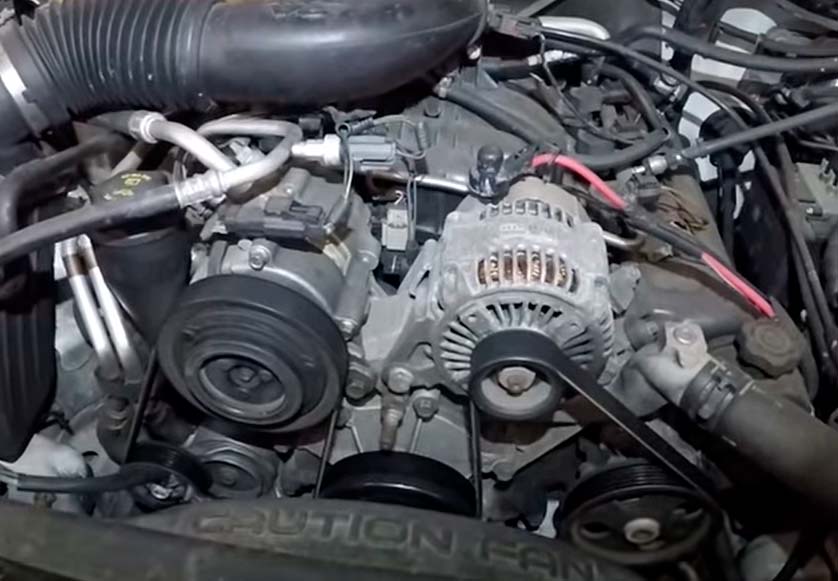Troubleshooting a Jeep AC compressor that refuses to cycle off can be a frustrating and uncomfortable experience, especially during the scorching summer months. The AC compressor plays a crucial role in the cooling system, responsible for pressurizing and circulating the refrigerant that cools the air inside the vehicle. However, when the compressor fails to cycle off as it should, it can lead to various issues, such as reduced fuel efficiency, excessive wear on components, and even potential damage to the AC system. In this article, we will explore the common causes behind a Jeep AC compressor not cycling off and provide troubleshooting steps to help you diagnose and resolve the problem, ensuring a cool and comfortable driving experience once again.
What Causes Car AC Compressor Not Cycling Off in a Jeep?
An AC compressor not cycling off in a Jeep can be caused by a few issues. The most common cause is a bad or malfunctioning air conditioning compressor clutch relay. The clutch relay sends an electrical signal to the AC compressor when the system needs more cooling, and it turns off when the AC temperature reaches its desired level. If the clutch relay is faulty, the AC compressor may not turn off, even when the temperature has reached its desired level.
Another potential cause could be a faulty expansion valve or evaporator core, which controls how much refrigerant flows into and out of the system. If these components become clogged or jammed, they won’t let enough cold air out of the system, causing higher temperatures and preventing the AC compressor from shutting off.
A final possible issue could be the low refrigerant levels in your Jeep’s air conditioning system. When there isn’t enough refrigerant in circulation, it won’t be able to absorb as much heat from inside your vehicle. It will struggle to keep up with demand – leading to your AC compressor running nonstop without reaching its desired temperature setting.
To determine what is causing your AC compressor not to cycle off, it is important to have your vehicle checked by a professional mechanic. They can diagnose the problem and recommend the most appropriate solution.
How to Diagnose & Troubleshoot the Car AC Compressor Not Cycling Off in a Jeep
Diagnosing and troubleshooting an AC compressor that refuses to cycle off in a Jeep requires a systematic approach. Follow these steps to identify and address the issue:
-
Check Refrigerant Levels: The first step is to check the refrigerant levels in the system. Low refrigerant levels can cause an AC compressor not cycling off, as described above. You must use an AC manifold gauge set and follow your owner’s manual instructions to do this.
-
Inspect Pressure Switch: Next, you’ll need to inspect the pressure switch, which turns off the AC compressor when its temperature setting has been reached. You can check this switch with a multimeter. If it is faulty or damaged, it will need to be replaced.
-
Check Electrical Connections: The next step is to check all the electrical connections in the AC system. Ensure they are not loose or corroded and replace any worn or damaged wires.
-
Test the Clutch Cycling Switch: You’ll need to test the clutch cycling switch. This switch sends an electrical signal to the AC compressor when it needs more cooling and turns off when it is no longer needed. Check this switch with a multimeter and replace it if necessary.
-
Inspect the AC System Components: Examine the AC system components, including the condenser and cooling fan, for any obstructions, damage, or debris accumulation. A clogged condenser or inadequate airflow can cause the compressor to work excessively. Clean or repair any affected parts as necessary.
-
Check for System Overload: Evaluate external factors that may contribute to system overload, such as high ambient temperatures. The AC compressor may struggle to cycle off if the vehicle operates in extremely hot conditions. Consider using shades or parking in shaded areas to minimize heat buildup.
-
Seek Professional Assistance: If you cannot identify and resolve the issue, seek professional assistance. An experienced technician can diagnose the problem and recommend the necessary repairs and solutions.
Common Solutions for an Unresponsive AC Compressor in a Jeep
When faced with an unresponsive AC compressor in a Jeep, several common solutions exist. Checking the refrigerant levels is crucial, as low levels can prevent the compressor from operating correctly. If the refrigerant is low, addressing any leaks and recharging the system to the appropriate levels is necessary. Inspecting the pressure switch and ensuring it is properly connected and functioning can help resolve the issue. Faulty electrical connections, such as damaged wiring or a malfunctioning relay, should be repaired or replaced to restore proper communication between components. Testing and replacing a defective clutch cycling switch, which controls the engagement and disengagement of the compressor clutch, can help resolve the problem. Examining the AC system components for obstructions, damage, or debris accumulation, particularly the condenser and cooling fan, and addressing any issues can restore the compressor’s functionality. Seeking professional assistance from a qualified mechanic or automotive AC specialist is recommended if these solutions do not resolve the problem or require further diagnosis.
Conclusion
The AC compressor is an important component in the cooling system of a Jeep. If it fails to cycle off as it should, it can result in uncomfortable rides and potential damage to other components. In this article, we discussed some common causes for a Jeep AC compressor not cycling off and provided troubleshooting steps to help diagnose the issue. Solutions such as checking refrigerant levels, inspecting pressure switches, testing clutch cycling switches, fixing faulty electrical connections, cleaning condensers or cooling fans, and seeking professional help were discussed as possible ways to rectify the problem. With these tips in mind, you can now confidently tackle any issues with your AC compressor.

 Check Refrigerant Levels: The first step is to check the refrigerant levels in the system. Low refrigerant levels can cause an AC compressor not cycling off, as described above. You must use an AC manifold gauge set and follow your owner’s manual instructions to do this.
Check Refrigerant Levels: The first step is to check the refrigerant levels in the system. Low refrigerant levels can cause an AC compressor not cycling off, as described above. You must use an AC manifold gauge set and follow your owner’s manual instructions to do this.
Add Comment